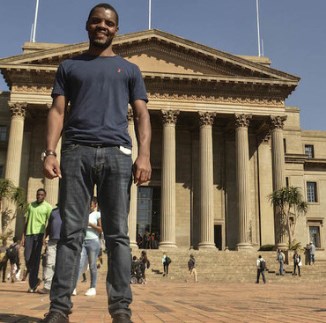
Lifestyle/Community

Exciting model to ‘fund the missing middle’
ANT KATZ
But that leaves a huge middle in-between section, “falling between two chairs”. The race is now on to find a solution to this conundrum.
A private/public partnership, headed by Sizwe Nxasana (past CEO of Telkom and FirstRand) has been working with banks to design a scheme to tackle this segment’s funding issues.
“They worked very hard in 2016”, says Dr Max Price, vice chancellor of the University of Cape Town, and came up with a private bank-funded, government-underwritten, “income contingent loan scheme” which allows students to pay back loans once they start earning, based on what they earn. This funding model is being piloted at seven universities this year.
As it is in the “pilot stage”, cases would be assessed individually to determine whether applicants qualify for funding or whether they are deemed to be able to pay their own university fees.
Price says that with the very high dropout rate at universities, “it makes financial sense to provide investment in support systems for students coming from schools in poorer areas.
He suggests that tutorial help, more student councillors, extra lessons and even degree-options and planning to spread study over additional years, are some of the interventions being considered.
Price says that many of the rituals and pageantry at South African universities are modelled on European designs. UCT’s buildings, for example, are designed to look like Oxford colleges. This has the effect of making many students feel they don’t belong at the almost 190-year-old institution. They don’t see any of their own heritage.
UCT is “escalating the time frames” in renaming buildings and some residences have even had their old names removed while new names are being decided upon.
Curricula have to become more inclusive, says Price. This can be as simple as English literature incorporating African authors. Even in the natural sciences, he says, “maybe we are teaching these things incorrectly”.
There is a lack of awareness of the negativity that sublimity can cause. Teaching about snow, for example, should be more sensitive to those who have never experienced it.
And, in medicine, for example, Price believes “that it behoves us to respect the 80 per cent of students” who have some belief in traditional medicine.
So, he says, the “default reaction of a specialist consultant at a bedside” when a patient may say they consulted a traditional healer first, is often dismissive, evident through, say, a rolling of eyes.
A black student who came from a rural background could “feel diminished and that they are out of place,” he points out.




